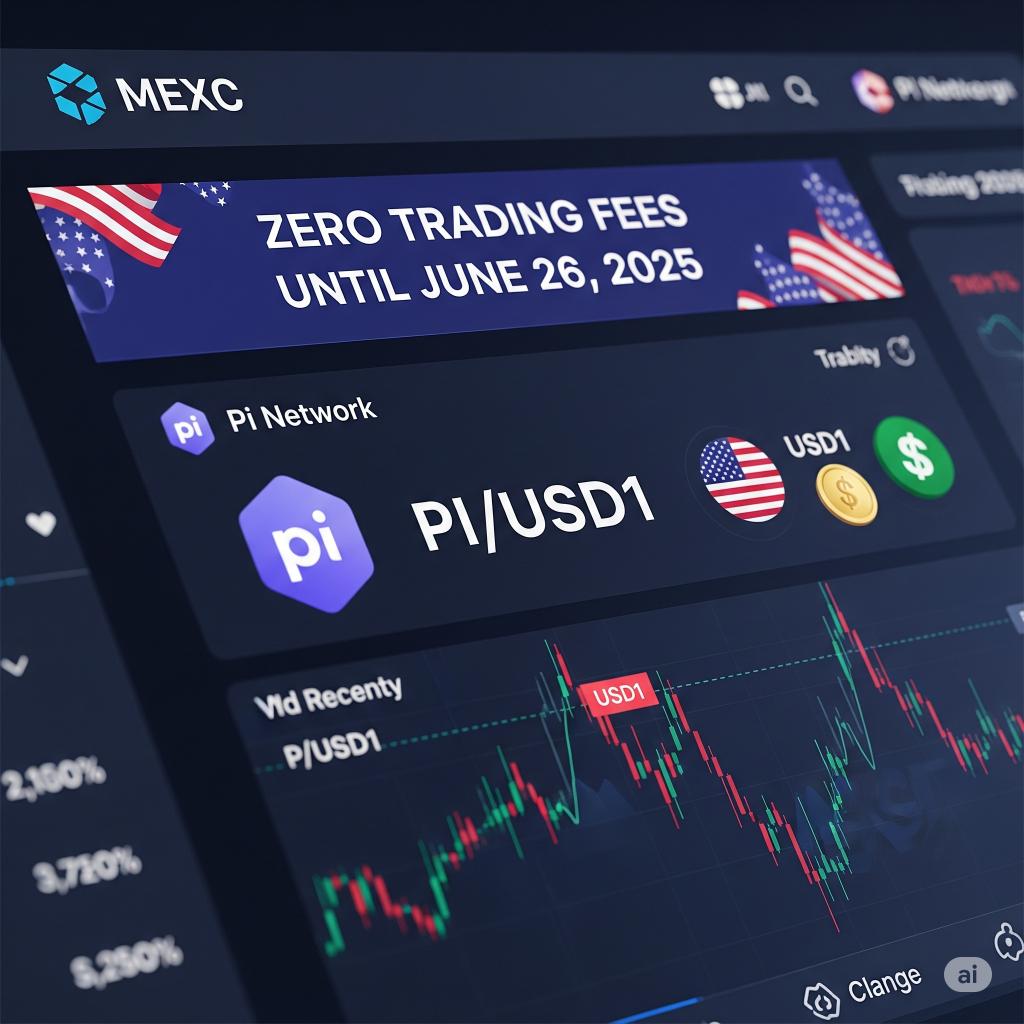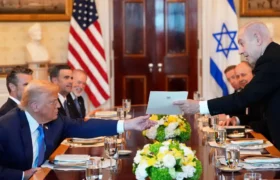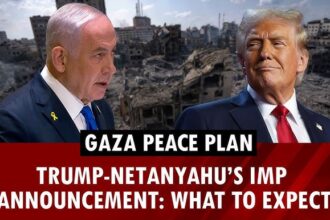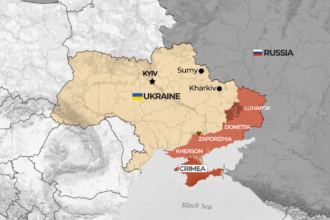In a dramatic and politically charged moment during a White House dinner, Israeli Prime Minister Benjamin Netanyahu presented former U.S. President Donald Trump with a letter he claimed to have submitted to the Nobel Prize Committee, formally nominating Trump for the Nobel Peace Prize.
The nomination, Netanyahu said, was in recognition of Trump’s role in promoting peace and cooperation between Israel and several Arab states through the Abraham Accords—a series of normalization agreements brokered during Trump’s presidency between Israel and countries such as the United Arab Emirates, Bahrain, Sudan, and Morocco.
Netanyahu reportedly praised Trump for “turning the Middle East into one state,” referring to the growing regional alliances Israel has developed under the Abraham Accords framework. The move, however, has drawn sharp criticism and renewed scrutiny due to Netanyahu’s ongoing legal controversies, including an outstanding war crimes case filed at the International Criminal Court (ICC).
A ControversialGesture
The public revelation of the Nobel nomination occurred during a private dinner attended by Trump, Netanyahu, and several senior political advisors and business leaders. According to eyewitnesses, Netanyahu handed Trump a printed copy of the letter addressed to the Nobel Committee in Oslo, sparking a round of applause among attendees.
Trump, visibly pleased, reportedly thanked Netanyahu and expressed confidence that his administration’s foreign policy would be remembered as “the most peace-oriented in modern times.”
While Trump has previously been nominated for the Nobel Peace Prize by various international figures and lawmakers, the gesture from Netanyahu carries particular symbolic weight, given the pair’s long-standing political alliance.
The Abraham Accords: Legacy or Illusion?
The Abraham Accords, signed in 2020, were touted as a landmark achievement in Middle Eastern diplomacy. The agreements formalized diplomatic relations between Israel and several Arab states, representing the first such normalization efforts since Jordan and Egypt established ties with Israel decades earlier.
Supporters argue the accords laid the groundwork for economic cooperation, travel, security arrangements, and broader regional dialogue. Critics, however, view them as transactional deals that bypassed the core issue of Palestinian statehood and entrenched existing inequalities in the region.
Some analysts have also expressed concern that the accords represented a shift toward regional consolidation of power rather than true reconciliation, especially as tensions between Israel and Palestinians in Gaza and the West Bank have escalated since their signing.
ICC Allegations Loom Over Netanyahu
The timing of Netanyahu’s Nobel Prize nomination for Trump is particularly contentious. In May 2024, the International Criminal Court (ICC) confirmed that Netanyahu, along with Israeli Defense Minister Yoav Gallant and Hamas leaders, faces formal charges related to alleged war crimes and crimes against humanity during the conflict in Gaza.
While the charges are still under judicial review, the ICC’s Chief Prosecutor cited evidence of deliberate targeting of civilians, blockade tactics, and disproportionate military responses in the Gaza Strip. Netanyahu has denied all allegations, dismissing them as politically motivated and illegitimate.
Nevertheless, the juxtaposition of a peace prize nomination with ongoing war crimes accusations has sparked widespread controversy. Human rights groups and international law scholars have condemned the move, calling it “tone-deaf” and “politically cynical.”
A Polarizing Moment
Netanyahu’s nomination of Trump is being interpreted through deeply partisan lenses. To Trump’s supporters, it is a vindication of his Middle East policy and an acknowledgment of his international statesmanship. To his critics, it is a calculated move meant to distract from both men’s mounting legal and ethical controversies.
The Nobel Committee has not yet responded to the reported nomination, and the list of official nominees remains confidential by policy for at least 50 years. However, the story has already reignited debates about the politicization of global honors and the moral criteria for recognizing peace efforts.
Conclusion
While the Abraham Accords remain a significant diplomatic development, the circumstances under which Netanyahu nominated Donald Trump for the Nobel Peace Prize are likely to be scrutinized for months to come. As both leaders navigate growing legal pressure and international criticism, the boundaries between diplomacy, symbolism, and political theater continue to blur.
The nomination may never materialize into a Nobel award, but it has certainly succeeded in generating headlines—and reigniting the global conversation on peace, accountability, and the price of political legacy.










